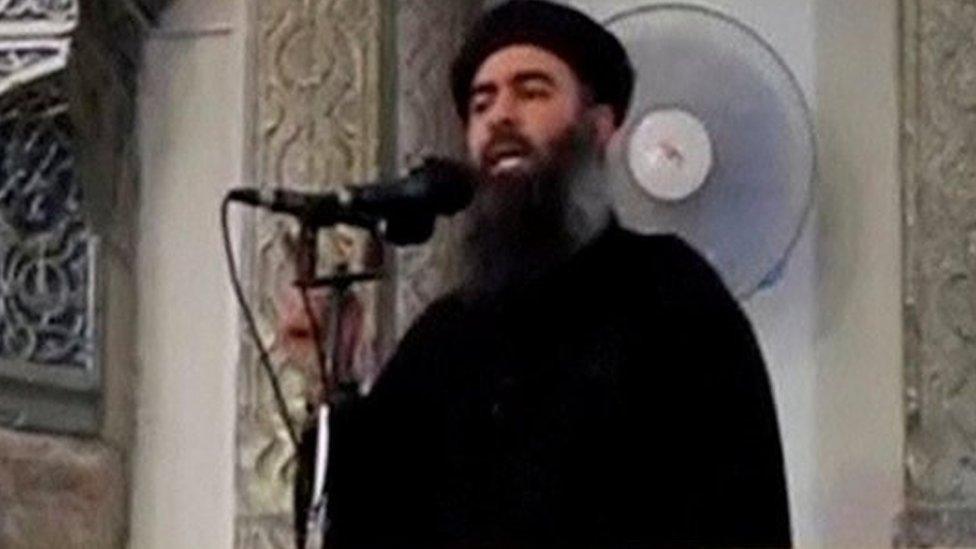Mosul battle: Despair and death as civilians flee
- Published
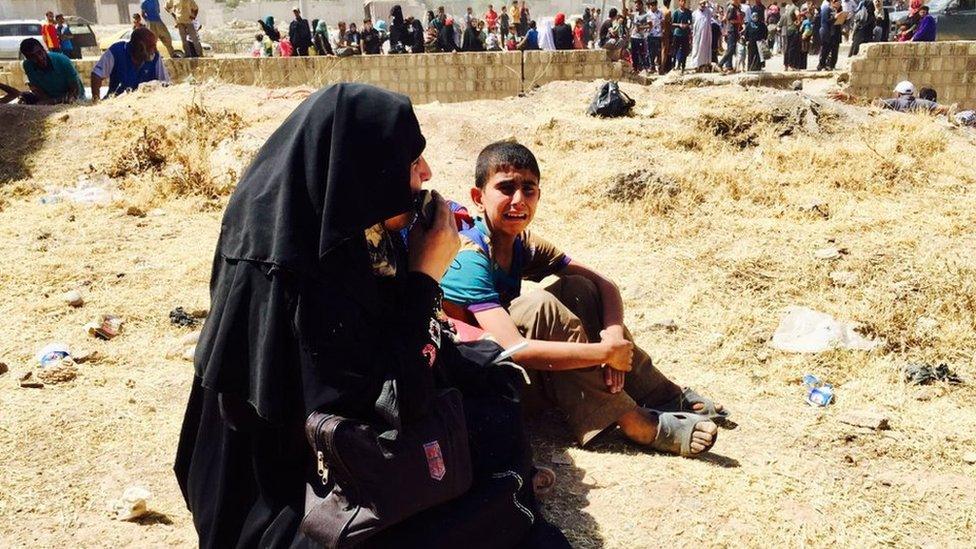
There are thought to be 100,000 people still trapped in the last IS-held district of Mosul
As the battle to retake the last districts of Mosul from IS control enters its final stages, the UN says as many as 100,000 civilians are trapped there, held as human shields by the militants.
BBC Persian's Nafiseh Kohnavard is one of the few international reporters to have been on the frontline and witnessed what's becoming an increasingly desperate humanitarian situation.
Even by the grim standards of the long and bloody battle for Mosul, what's been happening in the western part of the city over the past two weeks is unlike anything that's gone before.
As the Iraqi forces close in on the militants in a tiny area of narrow streets in the old city, the civilian death toll is rising at an alarming rate.
Over the past two weeks, the UN says that 230 residents have been killed in western Mosul, some in air strikes and rocket attacks, and others shot dead by IS snipers as they try to flee.
Unlike in eastern Mosul, where residents were told to stay in their homes and take shelter in the basements while the fighting raged around them, the advice from the Iraqi forces in leaflets dropped on the old town and neighbouring district is stark.
"If you can find a way out, leave now."
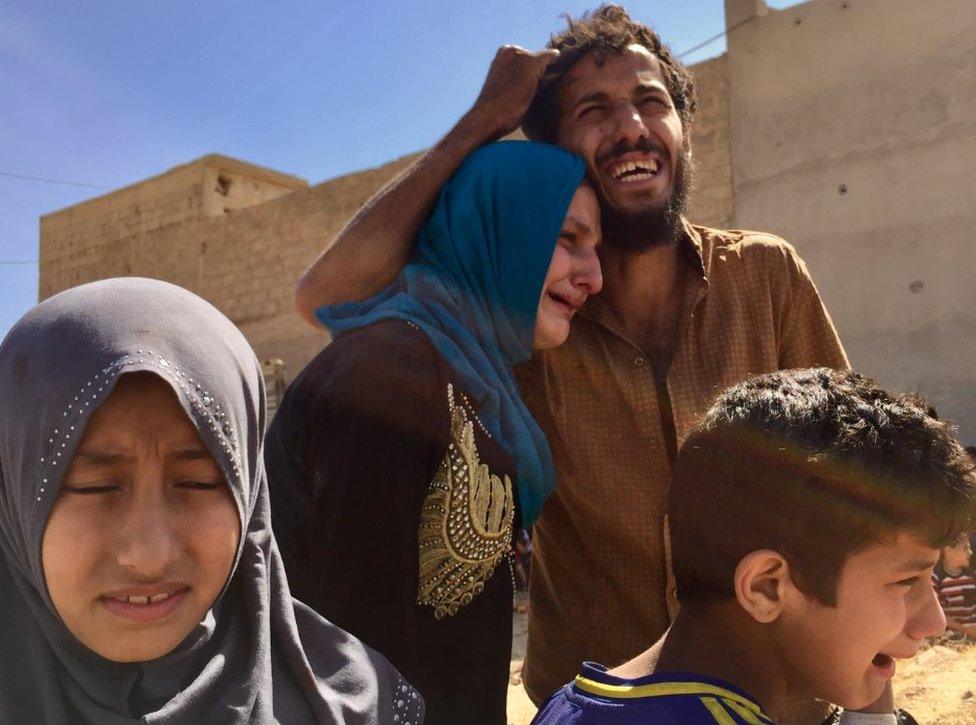
This family, like most of the others, had lost a loved one. In this case, a daughter
"It was a tough decision to make," says Gen Fares, from the Iraqi federal police.
"But these areas are densely packed and we are expected intense fighting so saving civilians lives here is more difficult than in any other area."
Standing just back from the frontline in Zanjili district, we watched a steady stream of distraught civilians fleeing towards Iraqi positions.
With IS fighters less than 300 metres away, the air was full of the sound of gunfire and explosions.
Many people were bleeding, many people had become separated from their families or had seen relatives, including children, shot.
All around people were sobbing - adults and children.
And everyone was shouting the same thing: "IS snipers! They shot at us, they kept shooting at us."
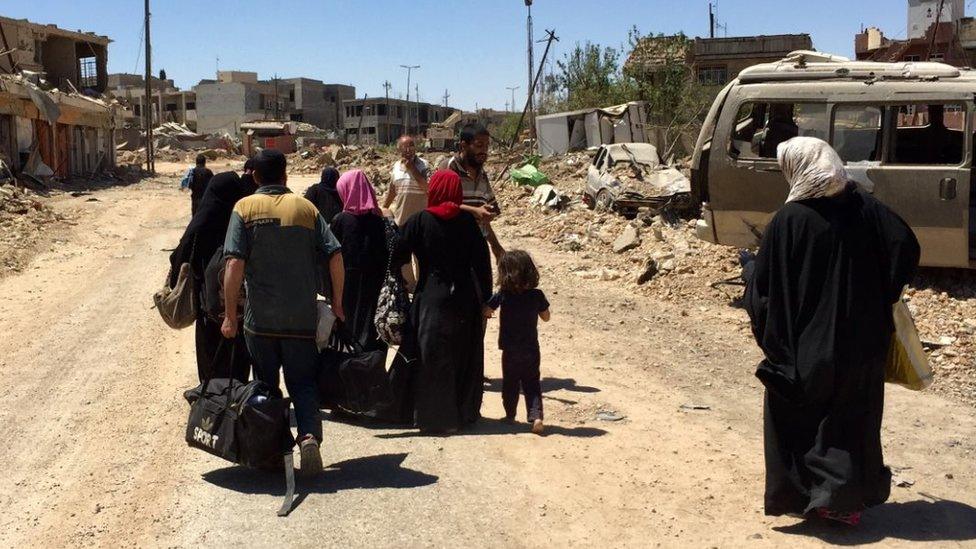
Families have been told to flee, but IS snipers target them as they leave
We met a man called Mohammad who seemed frozen with shock.
He was carrying his four-year-old son who had been shot dead as the family fled.
"We didn't expect this. I swear we didn't," he said. "The army was so close by that we all decided to make a run for it."
Even the Iraqi forces seem taken aback by the scale of the chaos.
As we watched we saw medics struggling to deal with the wounded and ambulances too full to take everyone to hospital.
The fleeing residents described an increasingly desperate situation inside the old town as the militants prepare for a fight to the death.
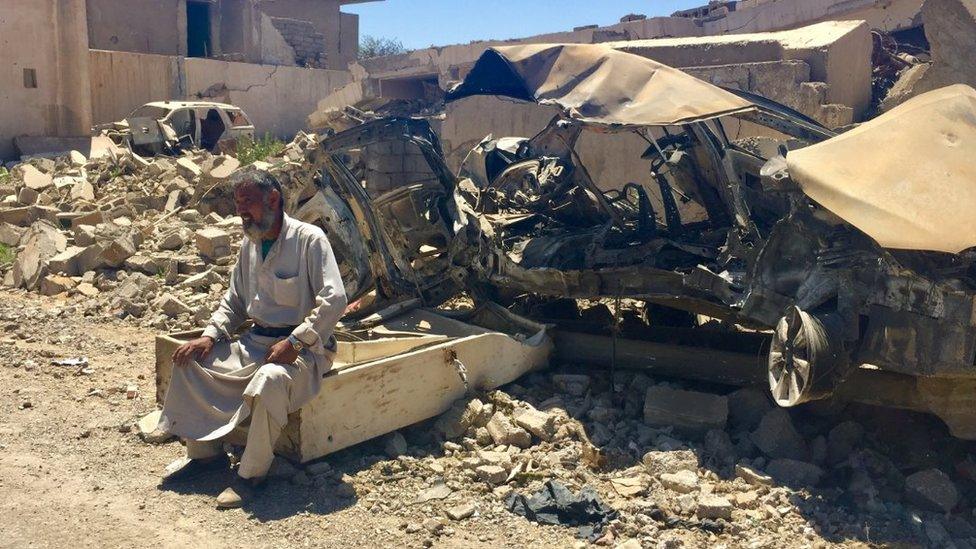
Iraqi federal police admit there are far more IS fighters than first thought
"They didn't let us come out, they closed down all shops, they took whatever was left in markets and they forced people, especially women and children, to go with them," said Zohal a doctor who fled with her husband and four children.
Others spoke of running out of food and water and having to dig wells in their yards to try to find water supplies.
The Iraqi forces say they have no clear idea how many IS militants are holed up in the old town.
"We thought there were between 150 and 300 IS fighters in western Mosul," Lt Gen Jewdat Raed, of the Iraqi Federal Police, told the BBC. "But after 16 days of day and nights of fighting we have killed 1,800."
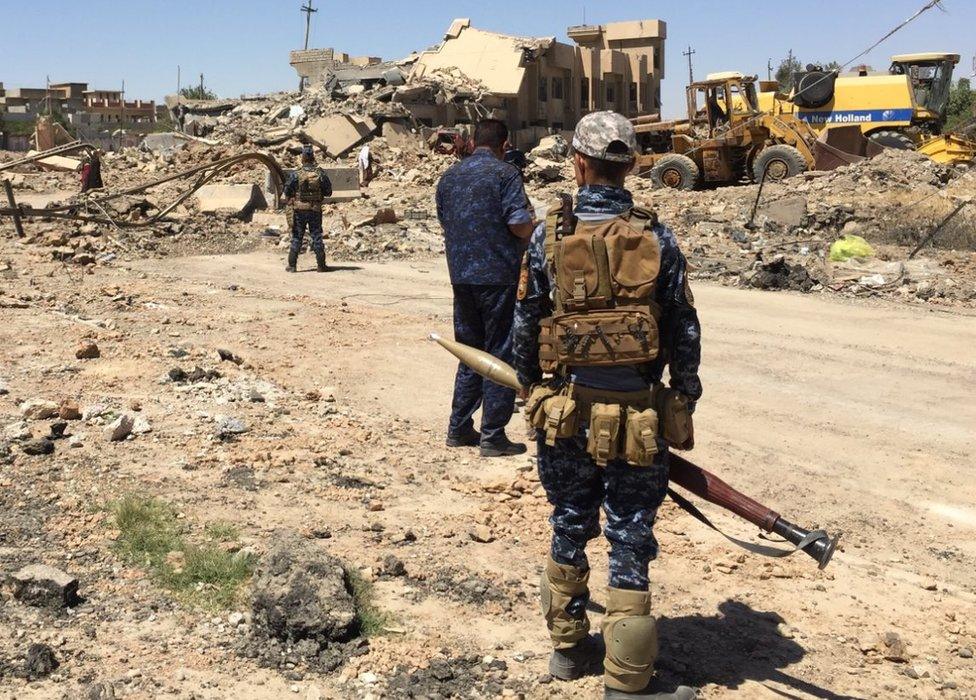
It was thought there were as few as 150 IS fighters, but police say 1,800 have been killed
The task is complicated by the fact that armoured vehicles and heavy equipment cannot be taken into the narrow alleyways of the old town.
The Iraqi forces are also reluctant to carry out air strikes on major buildings where they suspect the militants are hiding out, because they have reports civilians are being held inside.
Lt Col John Hawbaker, of the US Army 82nd Airborne Division, who is providing advice and assistance to the Iraqi federal police, describes this type of warfare as "the hardest one for any army in the world".
As we drove towards the frontline in Zanjili, we passed through areas newly liberated from the militants.
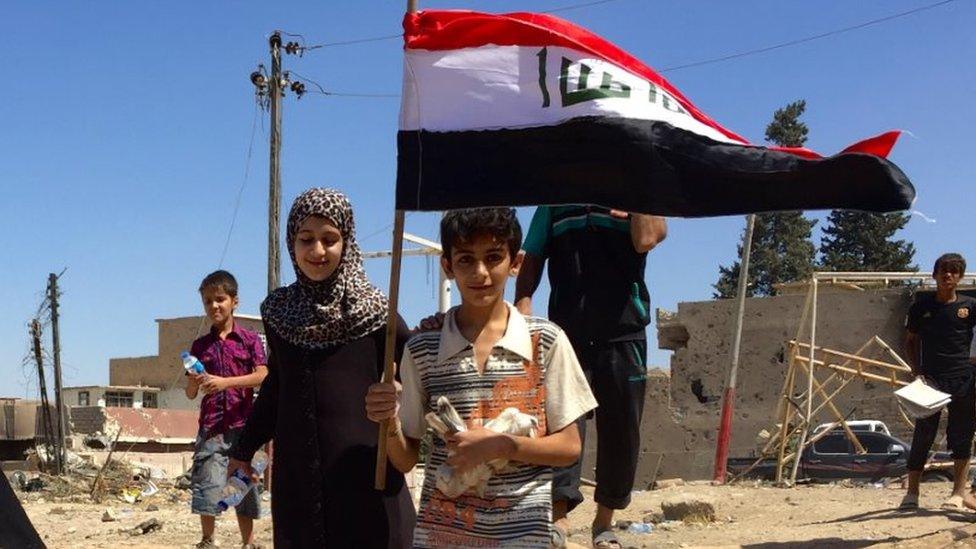
Fleeing residents described an increasingly desperate situation inside the old town
Evidence of just how fierce the fighting has been was clear - with ruined houses, bodies lying in the streets and cars upended among mounds of rubble.
The Iraqi forces say they want to finish the Mosul operation by the end of Ramadan.
Many previous deadlines have been and gone.
And with every day that passes the long list of civilians and soldiers who will never live to see their city liberated keeps getting longer.
- Published10 July 2017
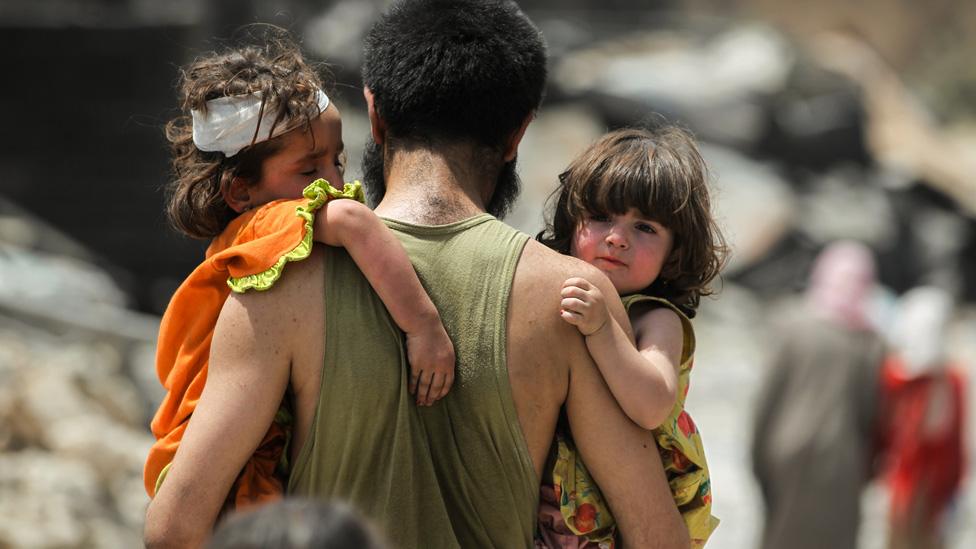
- Published20 February 2017
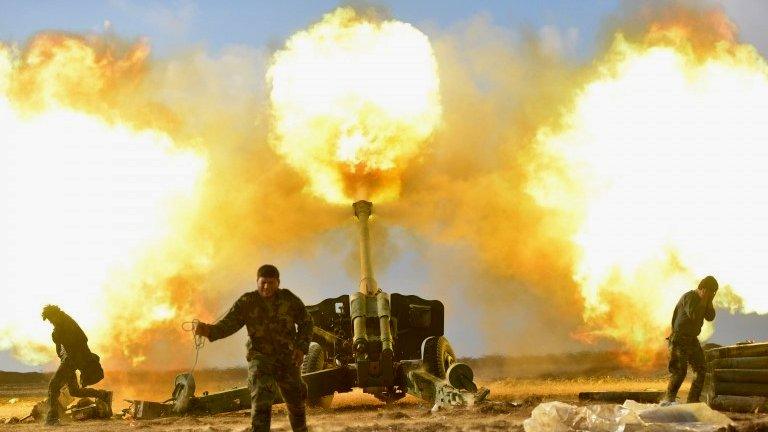
- Published16 June 2017
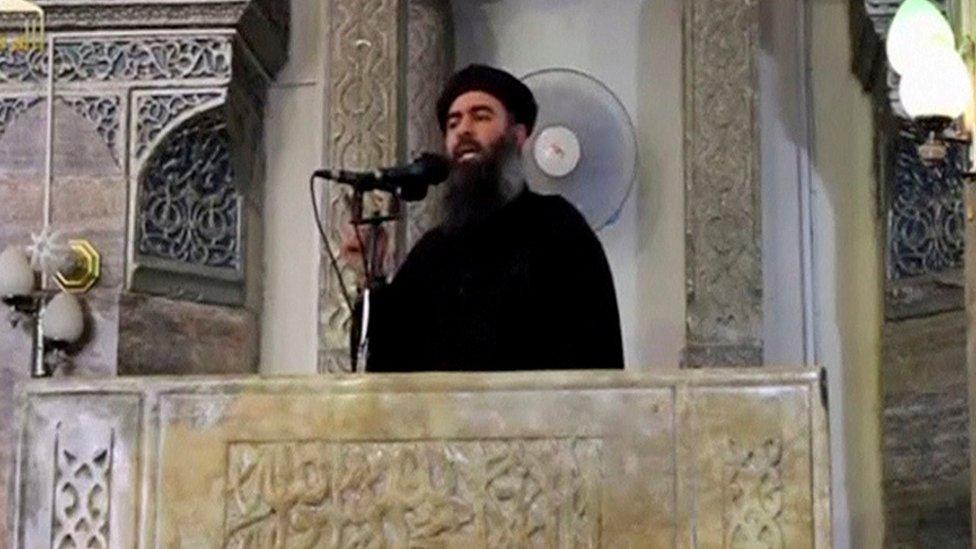
- Published8 March 2016
